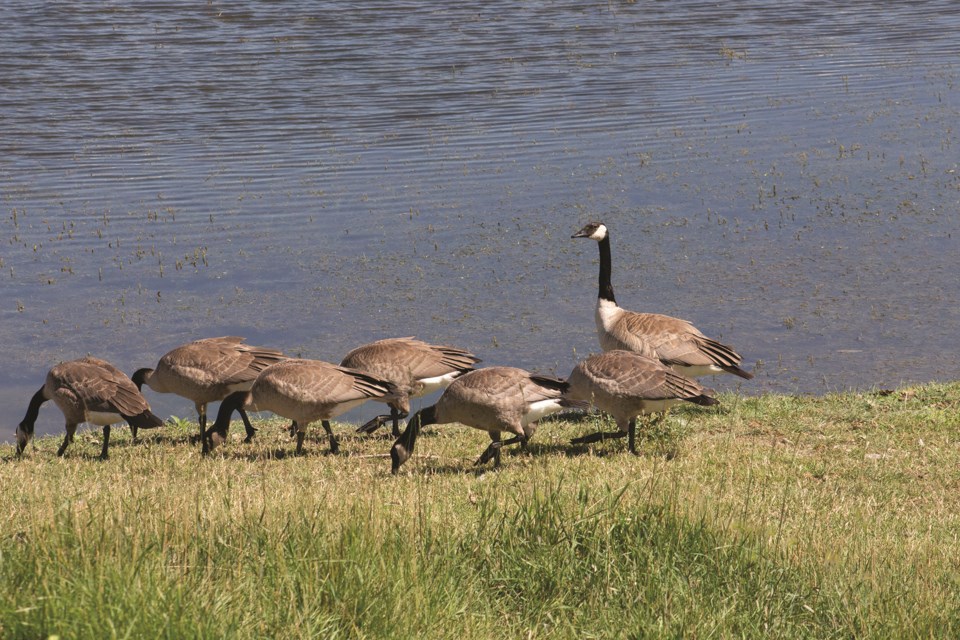With the arrival of spring, the migration of Canadian Geese will soon follow, and the Alberta Institute for Wildlife Conservation (AIWC) is sharing tips to prevent the birds from nesting in dangerous areas.
“When they return, typically it’s the breeding pairs that return first so they can set up to nest quickly,” said Holly Lillie, executive director with the Madden-based animal hospital. “They are going to places that are high up and close to water sources.”
Lillie said unfortunately, these nests are frequently set up in tall city buildings, which aren’t ideal for a number of reasons.
“We want to spread the word that prevention is key to stop them from nesting now,” she said. “As soon as the geese nest, they are protected under the Migratory Birds Convention Act, and it is illegal to destroy or disturb the nest with birds or eggs in them.”
The act states a first offence can result in a fine in the region of anywhere between $15,000 and $1 million, according to Lillie. A second offence could result in up to six months of imprisonment.
People should take proper prevention steps by netting off their balconies, gardens and other open areas with bird-safe netting, Lillie noted.
“As soon as they nest, they will be there to stay unless the federal government gives permission [for them] to be moved,” she said. “It is definitely something to take seriously.”
A press release from AIWC states that once goslings have hatched, it is extremely dangerous to relocate them and their parents from a high-rise building to a safer location. The best way to protect them is to stop them from nesting in poor nesting areas in the first place, the release said.
If residents are in a situation where a nest has been set up, Lillie said it is important to be patient and wait for the geese to move on.
Once the process has started, the mother can release anywhere from two to 12 eggs. Once the eggs are all out, Lillie said the mother will then incubate them and stay for 28 days before the hatching process begins.
Once the goslings all hatch, they will stay at the nest site for 12 to 24 hours. After hatching, the geese will move on to a previously-scouted water source.
“Geese typically return to the same nesting sight, year after year,” Lillie said. “With urban expansion, these areas are becoming more habituated by humans. It is getting challenging for them to navigate to where they want to go.”
AIWC is asking for members of the public to prevent geese from nesting and if they have questions, to please call its wildlife hotline at 403-946-2361
Jordan Stricker, AirdrieToday.com
Follow me on Twitter @Jay_Strickz


